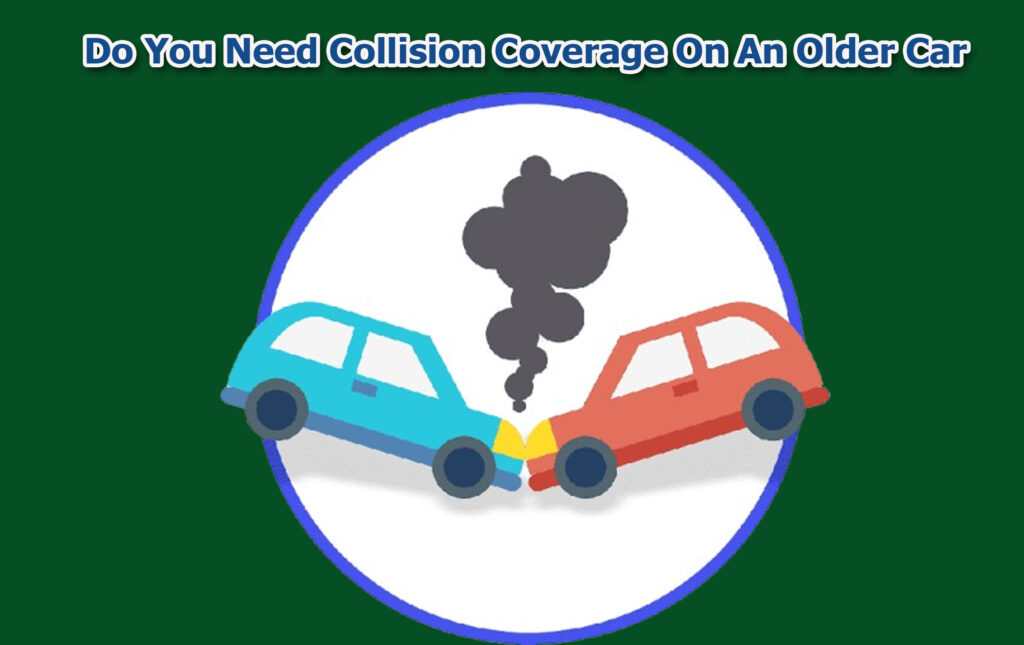Do I need collision coverage on an older car? If you’re driving an older car, you might be wondering whether it’s still worth paying for collision coverage.

While it offers financial protection after an accident, it may not always be the best value for older vehicles.
So, if your car’s value has dropped over the years, the cost of collision coverage might outweigh the benefits.
Collision insurance helps pay to repair or replace your vehicle if it’s damaged in an accident. Regardless of who’s at fault.
But as cars age and depreciate, the payout from a claim might be less than the premiums you’re paying each year.
To decide if it’s worth keeping, consider your car’s current value, how much the coverage costs, and how you’d handle repairs or replacement without it.
If you could cover the expenses out of pocket or if the car isn’t worth much, dropping collision might make financial sense.
But if the car still holds significant value or you can’t afford unexpected repairs, keeping it might give you peace of mind.
What Is Collision Coverage?
Collision coverage is a part of your car insurance that helps pay for repairs or replacement. That is if your vehicle is damaged in an accident, no matter who is at fault.
It generally applies when you hit another car or collide with a fixed object like a pole, guardrail, or tree. It can also cover situations where your car rolls over or is damaged in a single-vehicle accident.
However, it doesn’t cover damage caused by theft, weather, or hitting an animal. As those are usually covered under comprehensive insurance.
So, when you file a collision claim, you’re responsible for paying a deductible. Your insurance will cover the remaining cost up to the actual cash value of your vehicle during the accident.
Do I Need Collision Coverage On An Older Car?
Whether or not you need collision coverage on an older car depends on the car’s value, your budget, and how much financial risk you’re willing to take.
As a vehicle ages and its value decreases, the cost of collision coverage might no longer be worth it. If your car is only worth a few thousand dollars, the amount you’d get from a claim, after paying your deductible, may not justify the premiums.
On the other hand, if you rely heavily on your car and can’t afford to replace or repair it out of pocket, keeping the coverage could still make sense.
It comes down to comparing the cost of the coverage with what you might actually gain from it in the event of an accident.
How Much Coverage Do I Need?
Unlike liability insurance, collision coverage does not come with customizable policy limits. Instead, the insurance provider agrees to cover the repair or replacement costs of your vehicle, up to its actual cash value at the time of the accident.
For example, if your car is worth $19,000, they will cover repair costs up to $19,000 (minus your deductible). However, if your car’s value has depreciated to $5,000, the maximum they’ll cover is $5,000.
How Much Does Collision Insurance Cost?
The cost of collision insurance varies depending on multiple factors. The average annual premium for collision coverage is around $300, but your exact rate will depend on several personal and vehicle-related factors.
These include the year, make, and model of your car, the repair and replacement costs, the availability of replacement parts, your age, and where you live.
Additionally, your credit score plays a significant role. Drivers with lower credit scores often face higher premiums, as studies show they are more likely to engage in risky driving behaviors.
Can You Have Both Collision And Comprehensive Coverage On An Older Car?
Yes, it is possible to have both collision and comprehensive coverage on an older vehicle. Each type of coverage serves a different purpose. Collision covers accidents, while comprehensive protects against non-collision incidents like theft, vandalism, or weather damage.
The decision to maintain both will depend on factors like the value of your vehicle, any upgrades you’ve made that increase its worth, and how much you drive the car. It’s ultimately up to the car owner’s preferences and needs.
Who Is Required To Get Collision Insurance On An Older Car?
There are two main situations in which you may be required to keep collision insurance on an older car.
First, if your vehicle is still under a lease, you’re usually required to maintain full coverage, which includes both collision and comprehensive.
This ensures the leasing company is covered in case of damage. Secondly, if you own a classic or restored car, it’s often necessary to maintain both collision and comprehensive insurance to protect the value of your investment.
While no state legally requires collision coverage, most lenders will insist on it if you’re leasing or financing the vehicle.
How To Save On Collision Coverage On An Older Car
Reducing your collision insurance costs can be achieved in several ways. One option is to evaluate your car’s current market value and compare that with the cost of your insurance premiums.
If your car’s worth has significantly depreciated, the cost of coverage might outweigh the benefit. You can also choose to drop one of the two policies, either collision or comprehensive. This depends on your needs and the car’s condition.
Shopping around is another effective way to lower your premiums. Different insurance companies offer various rates, so it’s worth getting quotes from multiple providers before deciding.
Additionally, many insurers offer discounts for things like being a good driver, and having multiple policies with the same company. Also, being part of certain groups is an advantage.
If you’re moving to a new location, consider how that might affect your premium. The crime rate and accident frequency in your new area can impact the cost of both collision and comprehensive insurance.
A higher crime rate could increase the cost of comprehensive coverage. Especially in areas with a high frequency of car theft.



